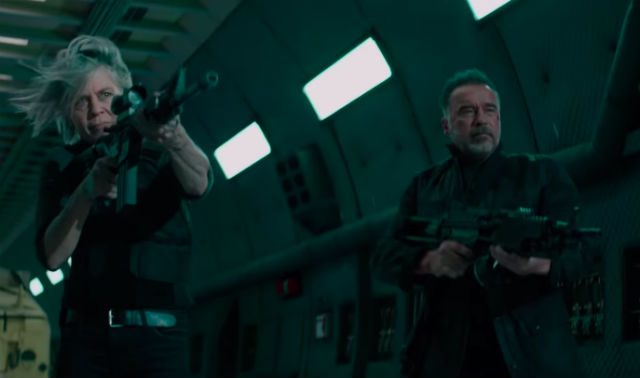SUMMARY
This is AI generated summarization, which may have errors. For context, always refer to the full article.

After Terminator 2: Judgment Day (1991), the franchise about time-traveling cyborgs on a mission to kill specific targets in the present, felt like it had nowhere to go.
The sequels were either louder rehashes of the concept – such as Jonathan Mostow’s Terminator 3: Rise of the Machines (2003) or unneeded and confusing convolutions of the lore such as McG’s Terminator: Salvation or Alan Taylor’s Genisys.
Clearly, absent the involvement of James Cameron, the franchise turned into a chicken with no head, with films being churned out without regard to what made the first two Terminator films memorable in the first place, which is the complicated relationship between machine and man which seems to overreach beyond being predator and prey.
What happens when the mission is complete?
Terminator: Dark Fate is the first film in more than two decades where Cameron had some sort of creative command. While the film is directed by Tim Miller, who is most famous for helming Deadpool (2016), it is clear that Cameron has exerted influence in ensuring that the film steers its way back to the core of his famous blockbusters.
The film wants to have a definite connection with the first two films, not just enlarging the malleable mythology of the dystopian future as what has been previously done in Rise of the Machines, Salvation and Genisys but also attempting to answer an important question that has never been asked before.
What exactly happens to a terminator once its mission to terminate is completed?
Arnold Schwarzenegger’s role here not just answers the question. It also inflects the franchise’s simplistic appreciation of artificial intelligence with notions of free will and semblances of morality. Sure, the film could have simply chosen this path for its narrative to maximize the franchise’s biggest star who in his old age has become less of a hulking action star and more of a delicate legend best suited for stories of redemption, with his previous incarnations as a terrorizing harbinger of destruction are now greatly utilized for both heft and humor.
Whether intentional or not, Dark Fate feels more connected to the concerns of humanity than the artificial spectacles of a mindless blockbuster.

Never meant for high-brow thinking
Still, the Terminator franchise was never meant for high-brow thinking.
Dark Fate doesn’t make the mistake of being overly complicated. It is still driven by hard-pounding action. Its erstwhile musings are framed within another familiar hunt by another terminator from an alternate future where robots still come out as victors of this time, a Mexican girl (Natalia Reyes) who has some sort of role in that alternate future. Miller threads together all the action scenes with expert ease, having no trouble in transitioning an exhilarating car chase in the highways of Mexico City to a rumble aboard a military cargo plane to the depths of a rampaging river.
Dark Fate also manages to be as current as possible.
It has an action scene set in the Mexican border, with the current policies on immigration being put within observable distance from the iniquitous chase of a Mexican girl by a seemingly fascist overlord.
Women also outnumber the men, with a cyborg (Mackenzie Davis) from the future serving as bodyguard to the targeted girl and Sarah Connor (Linda Hamilton) returning in a mission to rid the present of any terminator-targeting little girls. Sarah Connor’s presence here is paramount because Dark Fate shifts the role of women in the entire Terminator lore, turning them into active participants in the fight rather than just mothers to heroes.

A bid at redemption
Dark Fate is a fun ride.
While the film doesn’t really absolve the franchise from its many greed-fueled entries, it at least allows the franchise a bid at some redemption. – Rappler.com

Francis Joseph Cruz litigates for a living and writes about cinema for fun. The first Filipino movie he saw in the theaters was Carlo J. Caparas’ Tirad Pass.
Since then, he’s been on a mission to find better memories with Philippine cinema.
Add a comment
How does this make you feel?
There are no comments yet. Add your comment to start the conversation.